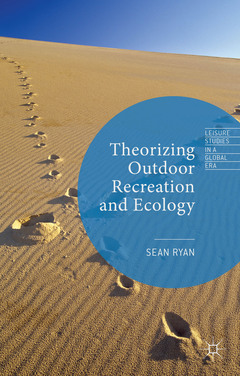Description
Theorizing Outdoor Recreation and Ecology, 1st ed. 2015
Leisure Studies in a Global Era Series
Author: Ryan Sean
Language: English
189 p. · 14x21.6 cm · Hardback
Description
/li>Contents
/li>Biography
/li>
1. Introduction
2. Discourse and Power in Outdoor Recreation
3. Humans and Nature
4. Tracing and Haunting Humans and/in Nature
5. The Nature of Paradoxes/The Natural Paradox
6. Paradoxical Outdoor Recreation
7. Conclusion
Sean Ryan is a Lecturer in the Faculty of Physical Education and Recreation at University of Alberta, Canada. He has worked as a wilderness guide, which culminated in a 70-day, 2500km canoe trip.




